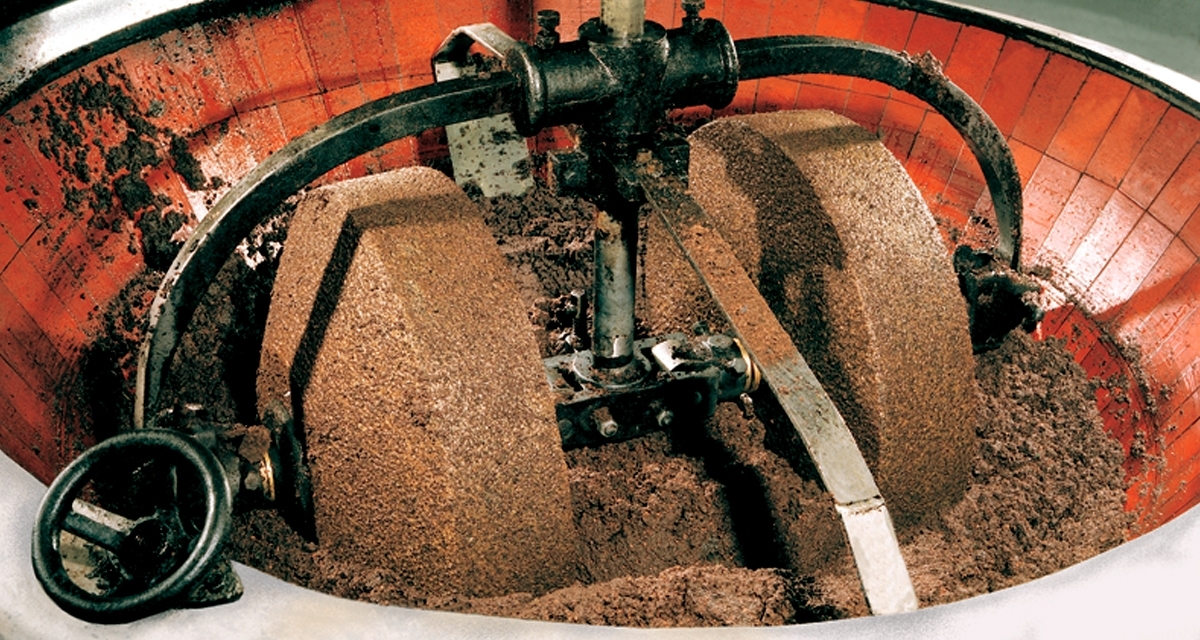
First pressing
This term was created to facilitate identification of an extra virgin. However, it has no capacity to define or qualify an olive oil. Olive oil is produced in mid-winter. Depending on the day, the olive may be frozen. Water, at a temperature of 28 degrees, facilitates the work of maceration.
This temperature does not affect the olive oil, and this water (mineral) joins the vegetal water of the olive and exits in the process without influencing the final result in any way. The first pressing has another connotation: in the pressure process there is a space of time between the maceration and the separation of the solids from the liquids. At this moment, the pomace remains under the influence of nature. Light, heat and air are acting on this mass. If it takes longer or the required care is not taken, this mush may reach the mats already oxidized, resulting in a rancid or tasteless olive oil without aroma. To be clear: this may occur when the right care is neglected. This happens in many small mills. As we shall see below, in the centrifugation process, there is no possibility of a second pressing.
The system of presses, although antiquated, is quite convenient and largely used on small rural properties with small scale production for their own consumption and for sale in the local region.
This temperature does not affect the olive oil, and this water (mineral) joins the vegetal water of the olive and exits in the process without influencing the final result in any way. The first pressing has another connotation: in the pressure process there is a space of time between the maceration and the separation of the solids from the liquids. At this moment, the pomace remains under the influence of nature. Light, heat and air are acting on this mass. If it takes longer or the required care is not taken, this mush may reach the mats already oxidized, resulting in a rancid or tasteless olive oil without aroma. To be clear: this may occur when the right care is neglected. This happens in many small mills. As we shall see below, in the centrifugation process, there is no possibility of a second pressing.
The system of presses, although antiquated, is quite convenient and largely used on small rural properties with small scale production for their own consumption and for sale in the local region.
